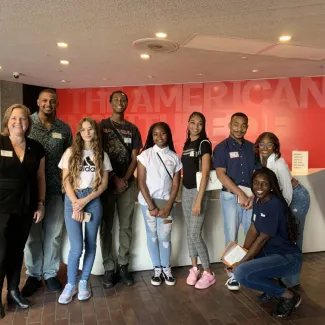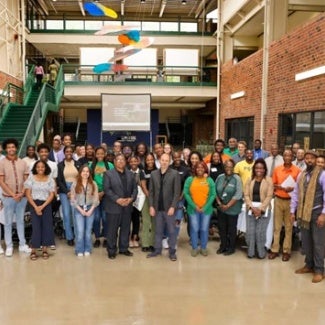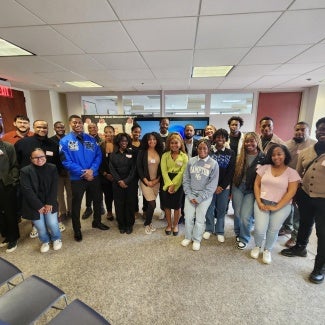AIA's HQ Renewal Internship
Started in the summer of 2021, AIA’s HQ Renewal Internship program highlights the importance of agency in the built environment and empowers future architects.
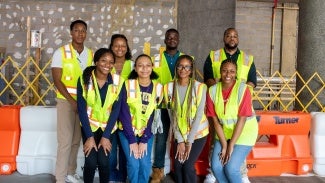
Empowering future architects
The program’s inaugural session took place in the summer of 2021. Each year since, AIA has engaged with the seven NAAB-accredited architecture programs at Historically Black Colleges and Universities (HBCUs) to offer a memorable summer internship experience. The hybrid internship, followed the progress of the AIA's headquarters renewal, each year offering a new and unique experience from the design to construction phase.
Centering the program on students from HBCUs is aligned with the AIA’s commitment to supporting equity, diversity, and inclusion; to ensure a more diverse and equitable profession, it is critical to ensure diversity in the pipeline of architecture students and to make sure all students have opportunities to thrive. “We need, as architects, to reflect the culture and the people that we work with,” says Robert Ivy, FAIA, former EVP/CEO of AIA.
Each summer students learned from professionals across the built environment, earned AXP hours, and were able to visit Washington DC for hands on learning and exploration of the AIA renewal project. Connections were made and networks expanded to include the design team at EHDD, Turner Construction, Hartman-Cox Architects, Hood Design Studios, and Alliance leaders from AIA, AIAS, and NOMA.
That sense of agency made an impact. “Even though we are the students, I think everybody is a student, and we all have something to learn from each other. So I really value that we were given a place and a space to speak” says Adia Joseph, an intern from Howard University.
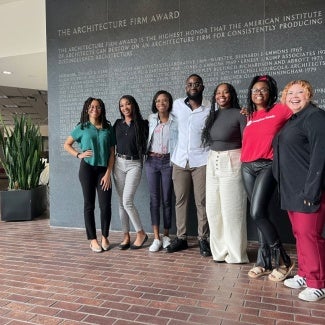
Seven students from five Historically Black Colleges & Universities (HBCUs) with NAAB-accredited architecture programs served as interns on the AIA headquarters renewal project this summer, with a

